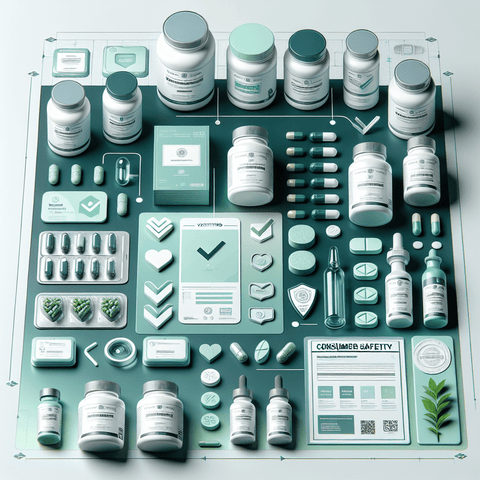Safe supplement purchasing starts with a mindset of verification. When you shop with confidence, you look for products that have undergone independent testing and present transparent labels. Independent testing by third-party labs, such as USP, NSF International, or Informed-Choice, provides an external check on product contents and potential contaminants. Transparent labeling means the product page and the label disclose what’s inside, in clear terms, and that the claims are not exaggerated. By prioritizing safe supplement purchasing, you reduce exposure to mislabeled or counterfeit items and set a standard for accountability in the marketplace. Within this framework, transparent labeling goes beyond marketing language. Safe supplement purchasing relies on exact ingredient lists, serving sizes, and amounts per serving, along with any allergens, fillers, and dosage forms. Look for a lot number, manufacturing date, and expiration date to ensure traceability. Reputable products also reveal the country of origin and the manufacturer’s contact information. If a label hides the composition behind vague terms like "proprietary blend" without listing amounts, that is a red flag in the context of safe supplement purchasing. When possible, verify the label against a certificate of analysis from a credible third party. Red flags to avoid scams are essential to safe supplement purchasing. Be wary of claims that sound too good to be true, or statements promising miraculous results. Lack of verifiable contact information or a physical address, vague return policies, or restricted access to product details are warning signs. Inconsistent packaging, missing lot numbers, unfamiliar distributors, or a retailer that makes frequent but unsubstantiated updates should raise concern. Also be cautious of products marketed without third-party testing or without a transparent supply chain; these are common signs that it may not meet safe supplement purchasing standards. To put these principles into practice, start with brands that publish independent test results and maintain clear labeling. Check the retailer’s credibility, look for certifications such as GMP, and search for recalls or safety notices in official databases. Compare products using the same criteria: serving size, ingredients, and COA availability. Keep records of your purchases, including batch numbers and expiration dates, and know how to contact the manufacturer for questions. By following these steps, you can approach safe supplement purchasing with greater confidence and minimize the risk of scams.

